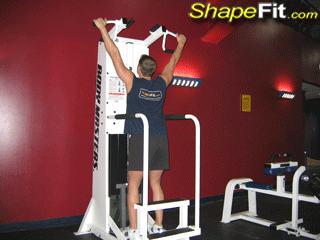How Creatine Helps You Gain Muscle and Strength
How Creatine Works:
1. Increased ATP production: Creatine plays a crucial role in the body's energy production. During intense muscular activities, the body converts creatine into phosphocreatine, which acts as an energy reserve for muscles. When you perform high-intensity exercises that demand quick bursts of energy, such as lifting heavy weights or sprinting, phosphocreatine can quickly donate its phosphate group to ADP, forming ATP (adenosine triphosphate), the energy currency of cells. By readily providing ATP, creatine allows muscles to perform at a higher intensity and over a longer duration.
2. Muscle Cell Hydration: Creatine helps attract water into muscle cells, leading to increased cell volumization. This process is known as cell volumization. When muscle cells are fuller and more hydrated, several beneficial adaptations occur, such as improved protein synthesis and enhanced nutrient transport.
3. Satellite Cell Activation: Creatine supplementation has been shown to stimulate satellite cell activation and proliferation. Satellite cells are important in muscle growth and repair. When activated, they can fuse with existing muscle fibers to increase their size or even form entirely new muscle fibers.
4. Increased Protein Synthesis: Creatine may indirectly promote increased protein synthesis, which is essential for muscle growth and repair. Although creatine's exact role in protein synthesis is still being studied, it is believed to positively impact hormones such as insulin-like growth factor-1 (IGF-1) and growth hormone, which play crucial roles in muscle development.
When to Take Creatine:
The most effective way to take creatine is to do a short loading phase followed by a maintenance phase. During the loading phase, you consume a higher dose of creatine to quickly increase your muscle stores. A common loading strategy is 5 grams four times a day for 5 days. After that, you can switch to the maintenance phase, which typically involves taking 5-10 grams of creatine once daily.
Benefits of Creatine:
1. Increased Muscle Gains: Creatine has been proven to help individuals gain more muscle mass compared to those who don't supplement. This is especially true for those engaged in resistance training.
2. Enhanced Strength: Creatine supplementation can significantly improve strength and performance in various exercises, such as bench presses, squats, and deadlifts.
3. Reduced Fatigue: Creatine's ability to replenish ATP allows muscles to perform at a higher intensity and for a more extended period before fatiguing. This can lead to improved endurance during workouts.
4. Faster Recovery: Creatine can aid in faster muscle recovery after intense exercise, reducing the time it takes to feel refreshed and ready for the next workout.
Side Effects:
Creatine is generally considered safe and well-tolerated by the majority of individuals. However, some may experience mild side effects, such as stomach upset, bloating, and muscle cramping, especially during the loading phase. These side effects are typically temporary and usually subside as the body adjusts to the increased creatine intake.
In Conclusion:
Creatine is a supplement with remarkable benefits for those looking to build muscle, enhance strength, and improve overall athletic performance. Its natural occurrence in the body and safety profile make it a popular choice among athletes, bodybuilders, and fitness enthusiasts. However, it's essential to follow recommended dosages and stay hydrated to minimize any potential side effects.
-
Rollup – Pilates Exercise Guide with Photos
Pilates Exercise Instructions: Sit tall, legs straight
-
Front Reach – Medicine Ball Exercise Guide with Photos
Exercise Advice: Begin with ball at belly button. Step
-
Don’t Have Time For A Full Workout?
Are you finding it difficult to squeeze in your regular exercise routi
-
Wide Stance Barbell Squats – Quadriceps Exercise Guide
Exercise Advice: Place a barbell behind your neck and
-
Clean Lunge – Kettlebell Exercise Guide with Photos
Exercise Advice: Take a wider than shoulder width stan
-
Machine Squats – Quadriceps Exercise Guide with Photos
Exercise Advice: Position yourself in the Leg Machine,
- Exercise Guides
- Exercises for Losing Weight
- Lying Dumbbell Curls – Biceps Exercise Guide
- Figure 8s – Kettlebell Exercise Guide with Photos
- Plie Dumbbell Squats – Quadriceps Exercise Guide
- Jumping Lunges – Bodyweight Cardio Exercise Guide with Photos
- One Legged Cable Kickbacks – Butt Exercise Guide with Photos
- Machine Rows – Back Exercise Guide with Photos
- Free Motion Cable Crossovers – Chest Exercise Guide
- Neck Pulls – Pilates Exercise Guide with Photos
- Barbell Bench Press – Chest Exercise Guide with Photos



